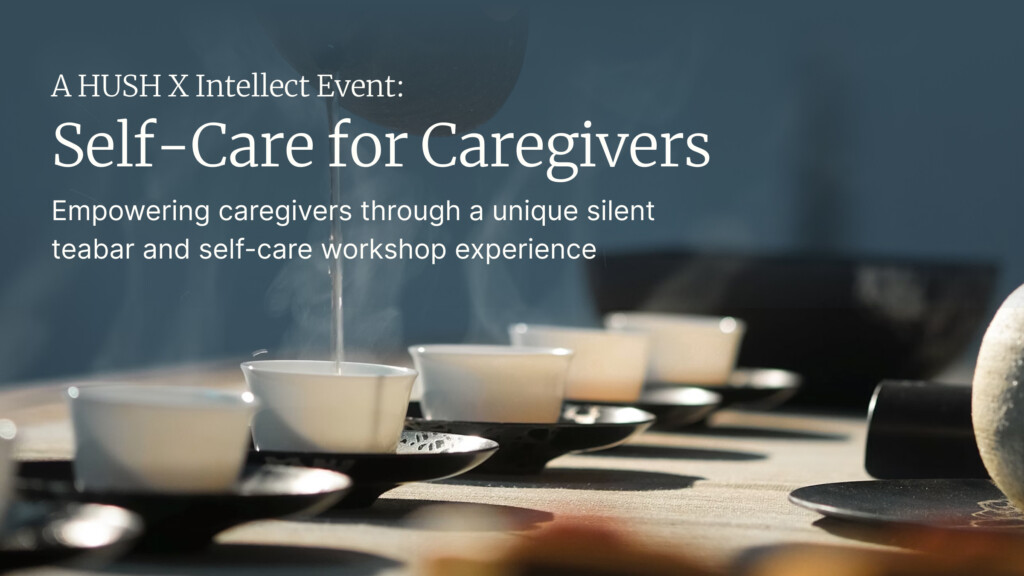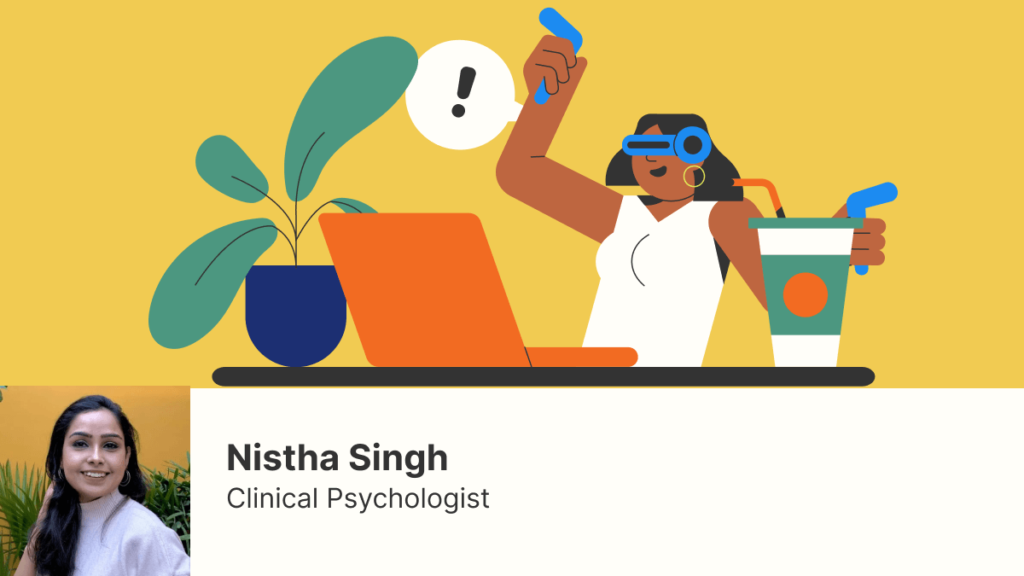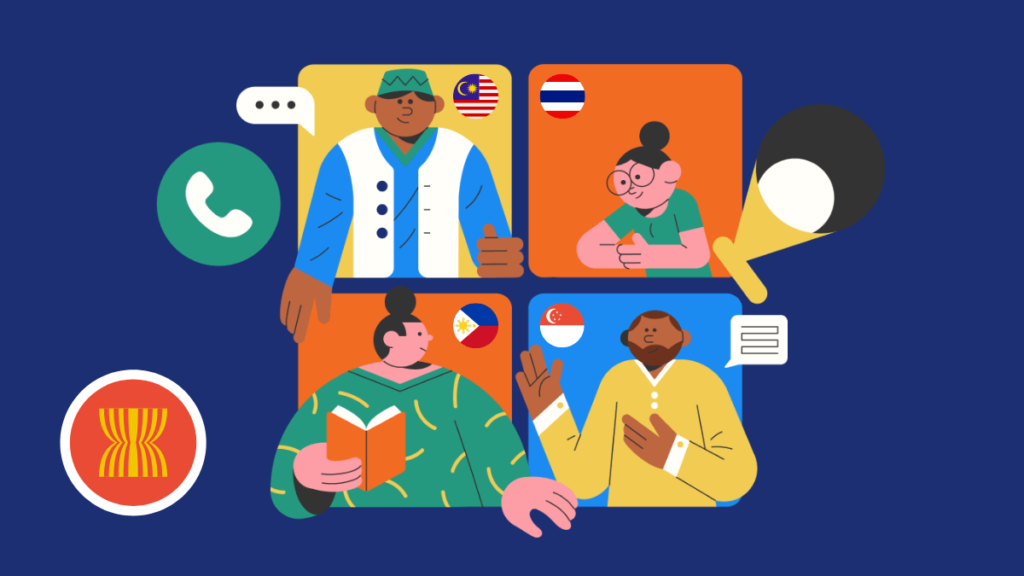Stop me if you’ve heard this one before: a coach, a counsellor, and a therapist walk into a bar.
Who do you choose to speak to? Well, it all depends on where you are on the mental health spectrum.
Knowing why, how, and what sort of guidance you seek is invaluable to ensuring you pick the right fit between coach, counsellor, or therapist.
At our recent Mental Health Festival 2023, we brought together a panel of three representatives to help bring clarity to that. Behavioural Health Coach Miguel Valesquez, Counsellor Sandya Padmanapan, and Psychotherapist Khairul Arif Razali each share how they would approach the same case differently, to give you a better idea of the different types of assistance you would receive.
Catch up on the session here:
Disclaimer: Please note that the following methods are indicative of the individual practices of these practitioners. They do not necessarily reflect the practices of their peers in the same field.
Case study
“John has been working for 3 years and has often struggled with effectively managing and responding to emotional experiences. Recently, it has gotten to the point where John lashes out at the people around them when they feel emotionally overwhelmed. This behaviour has put a strain on their relationships, and John has come to you for help.”
How would each professional address this issue with John?

Coach: Future-oriented growth
Behavioural Health Coach Miguel Valesquez resonates strongly with this case study because it mirrors a client he’s worked with before.
His overall approach would be to help John map out a route for getting where they are now (Point A) to where they want to be (Point B). Defining Point B is a co-creative process that incorporates the client’s personal values, motivations, passions, and interests.
Miguel starts with what he calls “code discovery”. He would work with John to identify behavioural patterns that come up in these situations, uncover the roots of these patterns, and create coping strategies for emotional regulation.
Then, together with John, he would formulate a six-month action plan to help them reach their Point B, whether it’s to gain better emotional balance or repair relationships. These actions include identifying when undesirable emotions arise, intercepting them, and moving into “sage” mode to achieve tranquillity and calmness. A range of techniques can be employed, including breathing and visualisation exercises, cognitive strategies, and practising empathy and compassion.

This six-month action plan may evolve based on cycles of reflection. Techniques and goals can be refined and adjusted based on continuous experimentation, effectiveness, learning, and feedback from John.
According to Miguel, coaches achieve success with their clients by providing “constant support and feedback, and holding the client accountable for their own progress”.
Consider coaches as the equivalent of “personal trainers” in your development – they assist you in reaching your fitness objectives through exercise regimens and dietary guidance, all while underscoring the importance of personal accountability.
Counsellor: Past and future-oriented growth and healing
Compared to a coach, a counsellor would dive deeper into the emotional aspect of their clients’ issues.
“It’s almost instinctual for me to [want to know] what’s the underlying reason for John’s problem,” says Sandya Padmanapan, Counsellor at Intellect.
“First, I would acknowledge their feelings and emotions, connect with them, be present with them, and tell them that it’s OK to feel the way they do. Because most of the time, people come in already feeling judged and frustrated.”

Once rapport has been established, Sandya would move on to uncovering which specific events, people, or circumstances trigger these undesired emotions. Only after the emotional triggers are identified and addressed will she move on to emotional management skills.
Oftentimes, these emotional triggers also affect other aspects of the client’s life. Rather than seeing the issue solely as a work-related problem, Sandya would examine how it can be generalised into other aspects of John’s life.
“In that process of journeying with my client, [my aim is to help clients] learn more about themselves as well,” she says.
While the recognition of behavioural patterns and deployment of coping strategies are largely similar between coaches and counsellors, counsellors place greater emphasis on working with the emotional aspect of mental wellbeing.
Therapist: Past and future-oriented growth, healing, and diagnosis
Psychotherapist Khairul Arif Razali would start by looking even closer at the deeper causes of John’s emotional outbursts.
He uses the 4Ps to conceptualise John’s case: predisposing, precipitating, perpetuating, and protective factors that may have caused difficulties with emotional regulation. He may also consider external influences that may have contributed to an individual’s emotional conditioning and responses.

Khairul finds that using metaphors and analogies has been extremely effective in helping clients develop better emotional awareness and intelligence. His aim is to help them understand why they react the way they do, the function of certain emotions in their daily lives, and how to evaluate an emotional experience with neutrality.
According to Khairul, the overarching role of therapists is to help their clients reach “a better level of acceptance regarding the variety of emotions that not only they feel, but the rest of us as human beings feel”.
Where do you need the most support?
A poll of our Mental Health Festival 2023 attendees revealed that the top two areas they needed more support in were emotional regulation (41%) and stress & burnout (33%). But beyond mental wellbeing, coaching, counselling, and therapy can also be used to help with achieving financial goals, improving physical health, and providing guidance with career development.
And the data speaks for itself. Research by Intellect has found that coaching clients reported a significant 20% decrease in perceived stress, and 33.6% improvement in mood levels over time.

The difference between a coach, a counsellor, and a therapist is largely related to the emotional depth that these professionals delve into when providing their services. While there are large overlaps in the process of pattern discovery, thought interception, and management strategies, choosing between the three boils down to what you need from an emotional standpoint, where you feel most “stuck”, and how you prefer to be assisted.
Regardless of these differences, all three are focused on helping their clients through a transformative journey to improve focus, empowerment, and growth—and ultimately achieve better alignment between personal and professional goals.
Learn more about how Intellect can help your employees here.




